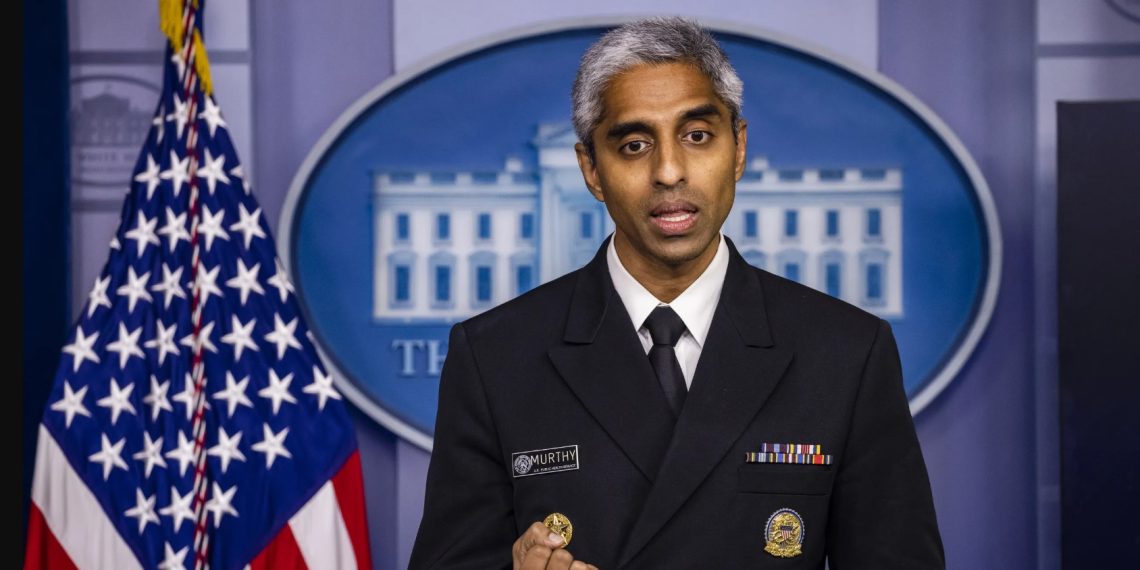U.S. Surgeon General Vivek Murthy has issued a comprehensive advisory that sheds light on the alarming impact of social media on the mental health of young people, particularly adolescent girls. The advisory serves as a wake-up call, urging tech companies, policymakers, parents, and individuals to take proactive measures to safeguard youth from the detrimental effects of excessive social media use.
While acknowledging the potential benefits of social media, Surgeon General Murthy expressed deep concerns about its negative consequences on children’s well-being. Drawing attention to the ongoing youth mental health crisis, he emphasized the urgent need to address social media’s role as a significant driver of this crisis.
The advisory highlighted several concerning effects of social media on mental health. It emphasized that prolonged social media use can contribute to body image issues, unhealthy eating habits, disrupted sleep patterns, social comparison, and diminished self-esteem, particularly among adolescent girls. These observations were based on insightful responses from a survey conducted among adolescents.
Startlingly, the advisory revealed that adolescents who spend more than three hours per day on social media face twice the risk of experiencing poor mental health outcomes, including symptoms of depression and anxiety. These findings underscore the critical need for proactive measures to mitigate the negative impact of excessive social media consumption.
However, the advisory also acknowledged that many adolescents perceive social media as a source of acceptance, support during difficult times, enhanced connectivity with friends, and increased creativity. It is crucial to strike a balance by harnessing the potential benefits of social media while mitigating its potential harms.
To address this pressing issue, the advisory proposed various recommendations. Policymakers were urged to strengthen safety standards to ensure the positive impact of social media on children of all age groups. Simultaneously, the accessibility of inappropriate and harmful content to children must be curtailed through improved safeguards.
Tech companies were called upon to establish and enforce age restrictions to regulate access to social media platforms effectively. Transparency regarding the impact of their products on children’s well-being is also crucial for informed decision-making. The advisory further emphasized the need for algorithms and platform designs that prioritize maximizing the positive aspects of social media, rather than encouraging prolonged usage and addictive behaviors.
Saul Levin, CEO of the American Psychiatric Association, stressed the importance of holding social media platforms accountable to the principle of “do no harm,” which is the cornerstone of healthcare ethics. Aligning social media platforms with this ethical standard is essential to protect the mental health and well-being of the younger generation.
The advisory also offered practical recommendations for parents, tech companies, and children and adolescents themselves. Creating a comprehensive family media plan, promoting offline friendships and real-world interactions, engaging in open conversations about online activities, and encouraging individuals to seek help when needed was among the suggested strategies to foster a more positive and safe social media experience.
In addition, the advisory highlighted the newly established 988 Suicide and Crisis Lifeline as a vital resource for those facing mental health crises. Raising awareness about this lifeline aims to ensure that individuals in need receive immediate support and assistance.
Ultimately, the U.S. Surgeon General’s advisory represents a significant step towards addressing the concerning impact of social media on youth mental health. By urging collective action and fostering a multi-stakeholder approach, it seeks to mitigate the negative effects while promoting a healthier digital environment for young individuals.












































































































































































